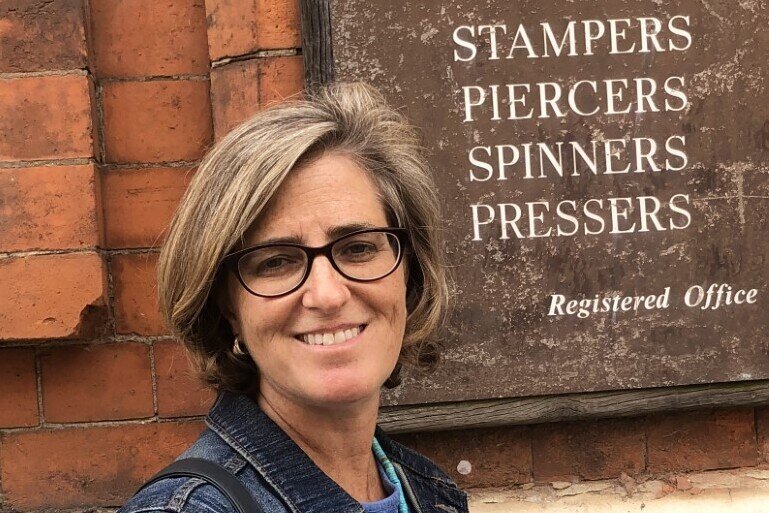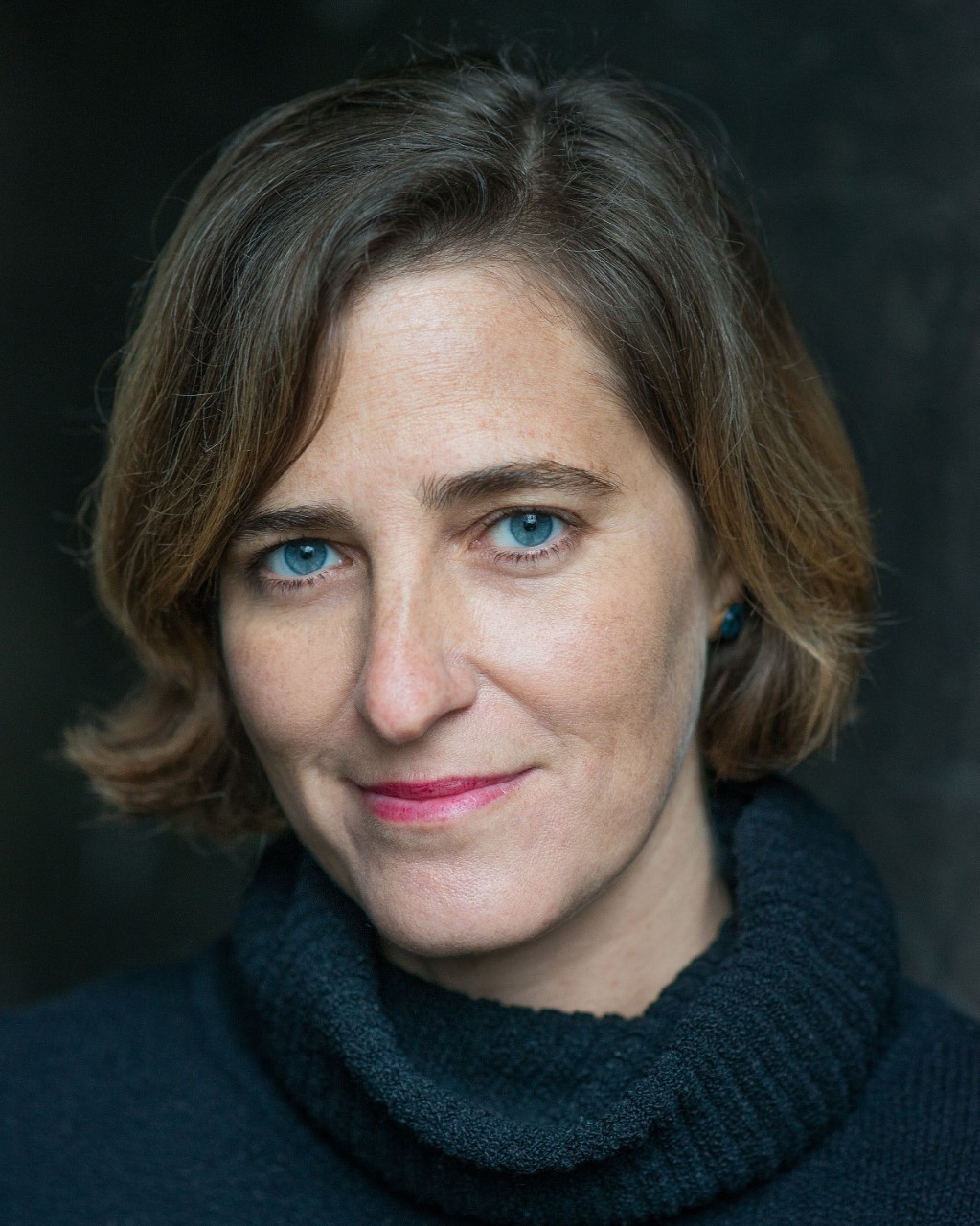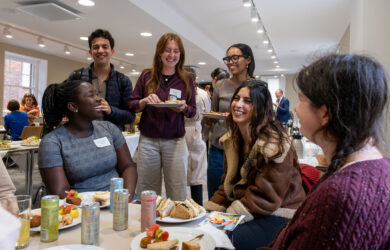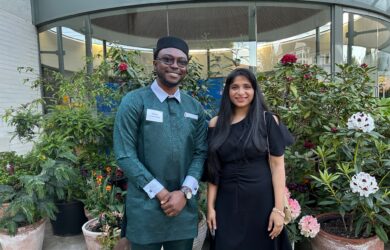
Sarah Dry on why biography is the key to understanding the history of climate science.
I want to blur the edges of our current divisions on climate change by revealing the different assumptions of those living in the past.
Sarah Dry
How do you tell the story of climate science and why does it matter? These are questions that Sarah Dry [2003] is grappling with. In her work on the history of science, biography has always been key. Through it she is trying to show the connections between the personal lives of scientists and the work they do.
“I’m not interested in scholarship for its own sake. I want to have a more immediate impact on the reader,” says Sarah. “Science is too important not to be understood widely. I want to explore the limitations of science as well as its potencies, to show it as being as richly human as any other creative endeavour. There’s no better way to do that than to delve into the lives of individuals.”
Though she acknowledges that there is a risk of giving grist to climate change (and other science) deniers by revealing the social aspects of science in the making, she thinks pretending otherwise is ultimately counterproductive. “Science can’t provide us all the answers we seek,” she explains. “We need to learn better how to assess the knowledge it does provide, which is all the more remarkable for being a product of contention and contestation.”
Making climate history
Sarah is currently working on the Making Climate History project, a five-year research project based at University of Cambridge and funded by the Leverhulme Trust until 2024. With colleagues, she is studying the emergence of the climate sciences over the past two centuries.
Her work on the project builds on previous research on the history of global temperature and includes taking oral histories of international climate scientists from that era who worked on global temperature. The endpoint will be a multi-authored work synthesising 200 years of climate history. “There is remarkably little published on the history of the study of climate, considering how important it is,” says Sarah.
In addition, she is working on another book – her fourth. It details the history of world modelling and systems thinking and is told from the perspective of the environmentalist Dana Meadows, the lead author of the controversial 1972 book, The Limits to Growth, which for the first time used a computer model to raise awareness about population growth, environmental degradation and pollution. Her goal is to use this history to understand why it has taken humanity so long to respond to urgent calls for action. “The history of systems thinkers – and the ideas they are passionate – can help us in the present,” she says. “We have 50 years’ worth of hard work and hard thinking on this topic which can help us to take the dramatic actions we need to maintain a healthy planet for all.
Early life
Sarah was born and grew up in Philadelphia and developed an interest in nature from an early age. Until she was around 13 years old, she attended The Philadelphia School, a progressive private school with an integrated curriculum. Every week the children would go to a farm where they would learn about nature in a cross-curricular way. Later, as a teenager, she would take part in various wilderness hiking trips which further stimulated her interest in nature.
After high school, Sarah went to Harvard where she studied US history and literature. She enjoyed the interdisciplinary nature of her degree, using literary texts as historical sources and understanding literature from the perspective of history.
From Harvard to Cambridge
At Harvard she got involved in student journalism, becoming arts editor of the Harvard Crimson and doing an internship at the Dallas Morning News one summer. After finishing her degree, she completed another six-month internship at High Country News, an independent newspaper covering environmental issues in the Western United States.
 Sarah then took a role as a communications officer for the fast-growing biotech company in San Diego called Structural Genomix before returning to academia to a master’s course at Imperial College, London. She did her thesis on the epidemiologist Dr Alice Stewart and her approach to risk and uncertainty in relation to the links between pre-natal x-rays and childhood cancer. Sarah also found time to write her first book, the award-winning biography Curie: Life & Times.
Sarah then took a role as a communications officer for the fast-growing biotech company in San Diego called Structural Genomix before returning to academia to a master’s course at Imperial College, London. She did her thesis on the epidemiologist Dr Alice Stewart and her approach to risk and uncertainty in relation to the links between pre-natal x-rays and childhood cancer. Sarah also found time to write her first book, the award-winning biography Curie: Life & Times.
She then applied to Cambridge to do her PhD in the history of science. Initially she was interested in looking at risk in relation to railway accidents in Victorian Britain and that did make up the first chapter of her thesis. The rest was on shipwrecks. For that she researched the history of the Met office, which was founded in the mid-1850s, to issue weather forecasts. At the time its forecasts were not always accurate and Sarah looked at the questions this raised for sailors over who to trust when making judgements about weather-related risks.
Books
After Cambridge, she worked at the London School of Economics’ Centre for the Analysis of Risk and Regulation and the STEPS (Social, Technological and Environmental Pathways to Sustainability) Centre at the Institute for Development Studies and the University of Sussex before returning to the history of science as a freelancer. Her first project was a history of Isaac Newton’s manuscripts – a previously unwritten story which showed clearly the relationship between science and society and how it has changed over the centuries.Her book on Newton, The Newton Papers: The Strange and True Odyssey of Isaac Newton’s Manuscripts, was published in 2014.
Waters of the World: the story of the climate in six remarkable lives followed which she describes as a return to thinking about the history of meteorology. The aim of the book was to explore the stories of the early scientists of climate change. Each of the six scientists she profiles in the book studied a different aspect of water science – oceans, glaciers, clouds and water vapour – all of which contributed to the climate modelling which lies at the heart of how we think about climate now and in the future.
Sarah is keen to emphasise that the book, published in 2019 and translated into Russian, Japanese and Chinese, is aimed at a wide audience who she hopes will find it interesting regardless of their politics. “I want to blur the edges of our current divisions on climate change by revealing the different assumptions of those living in the past,” she says.












